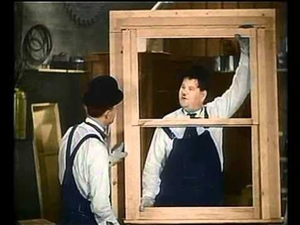
Staying Independent - Adaptations to Your Home
If you have chosen to live in your own home, there are many types of specialist equipment or adaptations to your home that can be made to make it easier to live independently. Your care manager should be able to advise you about what is suitable for your situation as part of your care assessment. They will also be able to advise on which costs are likely to be paid for by social services. Sometimes, local councils provide assistance such as low cost loans or grants to help renovate, repair or adapt your home.
Everyday items to make life easier…
There is a wide range of equipment and gadgets which can make day to day living that little bit easier. For example, you can buy:
- Clamps and holders to keep jars stable so they can be opened with one hand
- Alarm clocks that vibrate under the pillow for deaf and hearing impaired people
- Television remote controls with large buttons
- Kettle tippers for people who have limited arm strength or restricted movement
- Devices to help with putting on socks or shoes
- Devices that remind people with memory loss or learning disabilities to do a daily task, for example taking a pill
Larger items or permanent fixtures include…
- Stair lifts
- Bed raisers and hoists
- Powered leg-lifters for people who have difficulty lifting their legs into bed
- Grab rails for the bathroom or by the front door
You can see and buy all ranges of helpful equipment at mobility shops.
Trying out equipment before you buy
You should try out all equipment before you buy it. If you're considering buying an expensive item, ask to use the equipment for a trial period in your own home. There are also some very reliable sources of information:
The Disabled Living Foundation
This charity helps older and disabled people find equipment to enable them to live independently in their own homes. They offer a helpline service, which answers queries about equipment, an equipment demonstration centre, where you can try out equipment and get advice from occupational therapists and physiotherapists and a range of online factsheets to help you choose equipment, including stairlifts, hoists, scooters and household equipment. They also run an online service called Living made easygiving free, impartial information on all products available in the UK.
Ricability
This organisation is an independent research charity which offers in depth reviews for consumers on all types of equipment which could be used by elderly or disabled people to help live independently.
Loans of equipment
If you are caring for someone on a temporary basis, you may be able to hire equipment rather than buy it. Your local Red Cross will often hire out wheelchairs and other equipment, or consult your local mobility shop.
Written for yourcarehome - author: Mark Sadler
Related Advice Articles - Staying Independent
Staying Independent - Care in my Own Home
Many of us want to live independently in our own home for as long as possible, but may be in a position where we need a ... More
4 April 2013
Staying Independent – Telecare and Telehealth
Telecare and Telehealth are both technology-based system which can help you to live independently by alerting a response centre or a carer if there is a ... More
4 April 2013
Staying Independent – Personal Alarms
What are personal alarms? Personal alarms help to provide peace of mind for you and your carer whilst supporting independent living. They differ from Telecare systems because ... More
4 April 2013
Staying Independent – Occupational Therapy
How can an Occupational Therapist help? If you have decided that you need a little extra help with day to day living but want to remain in ... More
4 April 2013